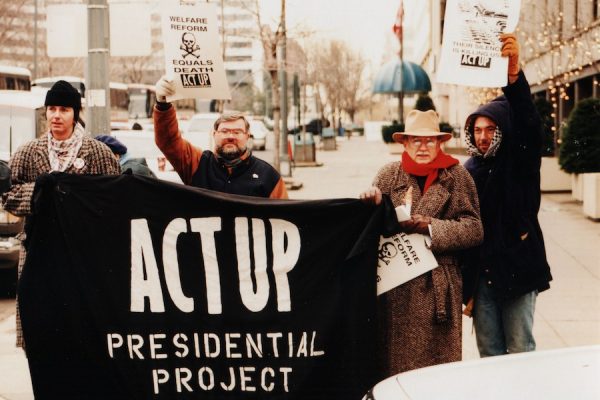Elaine Scarry’s provocative article illuminates the debate about what went wrong on September 11. Mesmerized by the power of technology, of which speed is one part, our defense establishment indeed was less than fully capable of adequate response. But terrorism has demonstrated even more serious shortcomings in government that may lead to policy choices quite different from those proposed by Scarry.
Civilian control of the military is not the major issue in dealing with terrorism’s shadowy threat. We have civilian control: the problem is how that control is exercised. The Vietnam War, for example, was not dominated by military adventurism; the president held the reins of policy firmly in his hands and involved himself in minute operational details. Ultimately, the democratic process began to work as it should, and erosion of popular support and active protest brought the war to an end without victory. A democracy the size of the United States requires delegation to elected representatives. No national policy can be sustained by citizens at town meetings. But we as voters can voice our policy objections to our representatives.
The problem in responding to September 11 and addressing the threat of terrorism, in my view, is less the concentration of power that Scarry focuses on than the failure of the interest and alertness of voters to make demands on those we elect. Thus far, we have not had a widespread, lively debate on the strategy for a comprehensive defense against terrorism. Three major areas strike me as deserving intense public attention. The independent commission investigating 9/11 will certainly deal with some of them.
Failure to analyze intelligence. Much has already been written about the failures to act on available information. The CIA knew about the Malaysia meetings involving the hijacker, Midhar. The NSA had information on the hijacker, Hazmi. The joint Congressional investigation has yielded more such shocking deficits of intelligence analysis.1 Bureaucratic inertia, combined with excessive caution, explains many of the failures. Traditional bureaucratic jealousies may explain even more about the failure to piece together information held by a number of agencies but not shared among them. What has been aired in the press may only be the tip of the iceberg.
This is not a new problem. But one year after September 11, little reform has been accomplished, and few serious internal intelligence improvements have been made visible to the public. It is an art to piece together a picture from the millions of scraps of data that are available. American intelligence agencies are well funded, and the magnitude and complexity of the problem warrants better placed and more wisely-used talent. Inattention to pieces of information that might be important to the security of the nation is intolerable.
Lack of policy focus. Closely related to the failure to analyze intelligence is the failure to plan a course of action that will deal more effectively with the problems uncovered. U.S. leadership had ample and specific warning of a sequence of escalating terrorist attacks. After the initial bombing of the World Trade Center in 1993, the U.S.S. Cole in Yemen, and the two U.S. embassies in East Africa, we should have been fully alerted to the scope and reach of al Qaeda and developed both short- and long-range plans to combat its threat. The problem was clearly more complex and nuanced than any immediate retaliation could solve. Certainly, the bombing of irrelevant sites in Sudan and Afghanistan at the end of the Clinton administration accomplished little. The swift attack on Afghanistan did succeed in destroying the Taliban’s grip on Afghanistan and its harbor for training and incubating al Qaeda terrorists. But a comprehensive, long-range strategy of action will require deeper thought and wider popular discussion than we have had thus far.
For that reason, one can question not only a planned attack on Iraq, but the entire two-war scenario that has dominated our military planning since the end of the Cold War. We may have<0x2014>or can acquire<0x2014>the military power to deal with two major regional conflicts. But it is doubtful that the nation possesses the leadership power that can be devoted to two major politico-military strategies, especially when one must be addressed to such an elusive area as worldwide terrorism. The Bush administration argues that Saddam Hussein’s regime is a potential terrorist threat, all the more so because it has used and is developing more weapons of mass destruction. But it has not made the case that full-scale military operations against Iraq can be accomplished while sufficient attention is paid to many other pockets of terrorism such as Indonesia, Egypt, Libya, Syria, and Saudi Arabia, where the strategy of the United States may be complicated by an Iraq war and require military, diplomatic, and economic efforts that require sustained attention from the highest levels.
The “war on terrorism” is likely to take a back seat to the war on Iraq, with dire consequences to American security. Where is public discussion? Fearing electoral repercussions, the opposition is afraid to question a president bound for war. The administration has diverted attention not only from the war on terrorism, but from alliance relationships and all other issues.
Arrogance and American Exceptionalism. American military power may defeat Saddam Hussein. But alone, our power is not sufficient to combat terrorism. The administration asked for cooperation from nations all over the world in intelligence-sharing and finding and prosecuting terrorists in their midst. From the results of efforts by Great Britain, Pakistan, Germany, and Spain, among others, we found that international cooperation has been critical. The 9/11 terrorists used many nations for their conspiracy and preparation.
Despite the demonstrated need for help, we have managed to erode support from major allies such as Germany not only by our intention to attack Iraq in violation of our international obligations under the U.N. Charter, but in the constant assertion of “hard power” and indifference to other international legal concerns. For example, securing a Security Council resolution demanding intrusive, no-notice inspections is not only sound international law, it is sound international politics. It may be a necessary political prelude to international support for war and especially its aftermath. It takes time to make the case that Iraq is the paramount terrorist threat. Military sanctions for violating a strong Security Council resolution are very different from unilateral war. But arrogance may result in quick, unsanctioned action.
In the end, my policy prescription for “civilian control” is for an informed citizenry to act through the representative processes. We need to put some iron in the backs of our legislators to ask the tough questions and to insist on legal processes–internally and externally. An egalitarian citizen-military, in contrast, can too easily be turned into an armed militia that will shoot a Sikh gas station proprietor out of ignorance.
Note
1. David Firestone and James Risen, “White House in Shift Backs Inquiry on 9/11,” New York Times 21 September 2002, 1.





